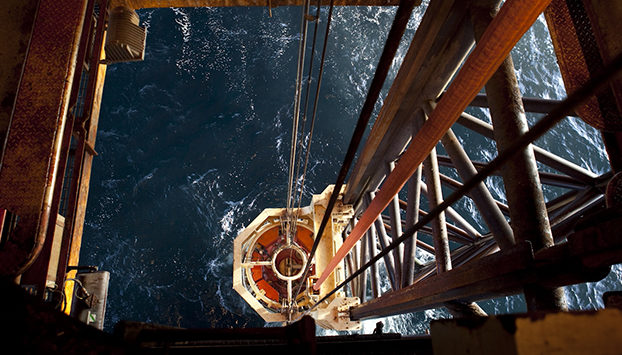
Oil and gas industry woes have created a potential skills crisis for North Sea decommissioning, an expert has warned.
Tim Haidar, the industry commentator behind market intelligence website Oil and Gas IQ said the recent collapse in oil prices had seen ageing infrastructure “rocket to the top of the owner-operator agenda”.
He added: “As of 2015, there were 1,357 offshore installations operating in the Ospar maritime area (the mechanism by which 15 governments and the EU co-operate to protect the north-east Atlantic), of which 545 are fixed steel assets.
“Approximately 80% of these fixed structures will come out of service by 2030, with an expected attendant cost of some £47billion.”
But there are big hurdles which “need to be vaulted” as decommissioning activity ramps up in the short to medium-term, Mr Haidar said, adding: “The 24 months since the oil price slide have seen as many as 440,000 redundancies worldwide, as well as thousands of early retirements for veterans with three decades and more of experience in their fields.
“Combined with the fact decommissioning in the North Sea is a comparatively unknown quantity and both the cost and scope of work are almost certain to creep upwards during the project cycle, one truth persists: an already limited pool of talent is evaporating fast.
“In addition, the skills of those with prior decommissioning experience may not be as transferable as they seem. Any dismantlement work that has taken place in less than 100 metres of water in benign conditions may not be relevant in at three times that depth in the inhospitable murk of the North Sea.”
Mr Haidar also warned decommissioning “notoriously” goes over time and over budget.
Oil and Gas UK upstream policy director Mike Tholen said the industry “does not foresee” an imminent skills shortage within the decommissioning market.
He added: “Most of the skilled personnel required for decommissioning are available from within the sector and may currently be working in operations or capital projects.
“These will be complemented by new entrants bringing their own expertise.
“There is a first-class and expanding skillset in … the North Sea, where decommissioning activities have been ongoing for many years.
“Decommissioning is taking its place alongside exploration and production activity as part of the offshore life cycle.”
Kevin Short, commercial director of Aberdeen-based learning technologies company Atlas Knowledge, said: “We are already seeing an increase in interest from companies taking proactive steps to ensure their personnel are prepared for the shift towards decommissioning campaigns in the region.
“While there are many similarities to brownfield projects and much of the expertise honed here in the North Sea will be transferable, the downsizing of the workforce over the past few years has impacted on the capabilities of those who remain.
“Most companies coming to us … have found themselves in the position where they don’t have the in-house knowledge to deal with the sector’s myriad of legal complexities and environmental regulations.”
Recommended for you
